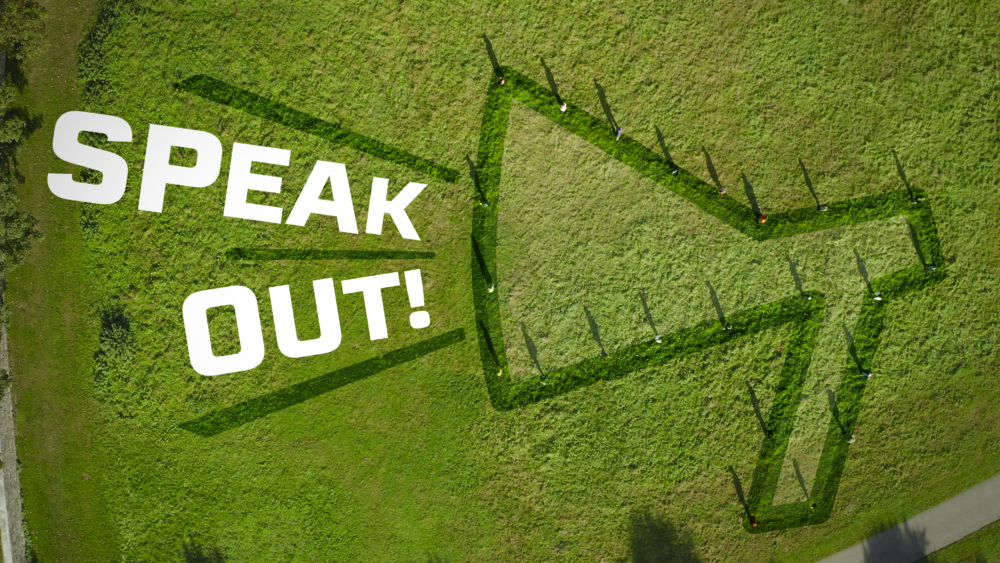
Find information on how to make a Protected Disclosure under the external procedures in place in the HEA.
By Maura O'Shea
Posted: 4 November, 2025

New national data reveals reluctance to report abuses in higher education
Universities and colleges across Ireland have teamed up to release national data from anonymous reports of abuse and harassment by staff and students from 2022-2024. The data shows that bullying and harassment were the most common abuses reported to Speak Out, an anonymous online reporting tool introduced at 17 higher education institutions (HEIs) in a bid to enhance safety for students and staff.
Funded by the Higher Education Authority, Speak Out’s dataset will be used to inform future responses to abuse and harassment in higher education, and to encourage formal reporting.
While 1,011 staff and students made anonymous reports over this period, only 12% of students made a formal complaint to their university or college about the abuse while only 4% of students made a complaint to An Garda Síochána.
Speak Out, whose national office is based at Trinity College Dublin, allows people to disclose their experiences anonymously of bullying, harassment, assault and sexual violence – and avail of signposting to support services. It is one of a range of reporting options available in HEIs.
The report, based on data from the 16 HEIs that implemented this tool from 1 September 2022 to 31 August 2024, should not be read as reflecting the true prevalence of these behaviours.
The number of reports made through Speak Out is expected to rise as the service becomes more established. HEIs exist within the wider cultural and societal context, and as such many of the issues reported are reflective of the broader experiences of those living within Ireland.
Key findings included:
Speaking about the launch of the report, Minister for Further and Higher Education, Research, Innovation and Science James Lawless said: “I commend our universities and colleges, and the Higher Education Authority, for taking meaningful steps to make higher education a safer place for students and staff. By tracking harmful behaviours and abuse in this way, we’re building a clearer picture of the challenges and laying the groundwork for stronger, more informed responses. There must be zero tolerance for abuse on our campuses. What this report highlights is the urgent need to break the culture of silence around these difficult and traumatising experiences, and to ensure students and staff feel safe and supported when they come forward.”
Elaine Mears, Coordinator at the Speak Out National Office, said: “Tackling abuse requires a whole of society response which will take time, commitment, and resourcing. The Higher Education Sector is stepping up to this challenge because we have a responsibility for our students and staff to be leaders in this cultural change. The resourcing of the Speak Out National Office and 16 new posts in HEIs dedicated to preventing and responding to sexual violence demonstrates a commitment from the HEA to working collaboratively to achieve this aim.”
Emma Monahan, Vice-President for Welfare at AMLÉ (Aontas na Mac Léinn in Éirinn), said: “AMLÉ believes that the Speak Out tool provides valuable data that can be used in tackling a range of issues faced by students and staff across our HEIs. AMLÉ will continue to work alongside the Speak Out team in order to raise awareness and engagement with the tool among the student population.”
Media Contact:
Elaine Mears
Speak Out National Coordinator
087 2339938
Notes for editors: Speak Out is currently available for staff, students and visitors in the below institutions: Atlantic Technological University, Dublin City University, Dundalk Institute of Technology, Dun Laoghaire Institute of Art and Design Technology, Maynooth University, Munster Technological University, National College of Art and Design, National College of Ireland, Royal College of Surgeons Ireland, South East Technological University, Trinity College Dublin, Technological University Dublin, Technological University of the Shannon: Midlands Midwest, University College Cork , University of Galway, University of Limerick, Mary Immaculate College.
Trinity College Dublin was successful in applying to host the HEA-funded National Speak Out Office, which began operations in March 2025.
Reporters to the online Speak Out tool can communicate their experience in a safe and completely anonymous manner. Their collective data is then analysed to inform responses to these experiences in HEIs and improve formal reporting procedures.
**************
The Speak Out online tool was developed by the Psychological Counsellors in Higher Education Ireland, and the pilot phase began in October 2021. The development of Speak Out was guided by the national policy framework for preventing and responding to sexual violence and harassment in higher education in Ireland.
In 2023, the Higher Education Authority (HEA) commissioned an evaluation of Speak Out, then operating as a pilot. This proposed a consortium model, hosted by an institution or representative body on behalf of implementing members.
******************
Anonymous reporting tools for incidents of sexual harassment and violence can be found across HEIs in Europe, the UK, the US, and Australia. They offer a well-established mechanism for providing staff and students with a space to safely disclose their experiences. Research from UK universities has shown that the provision of an anonymous reporting mechanism has led to an increase in formal reports.
ENDS